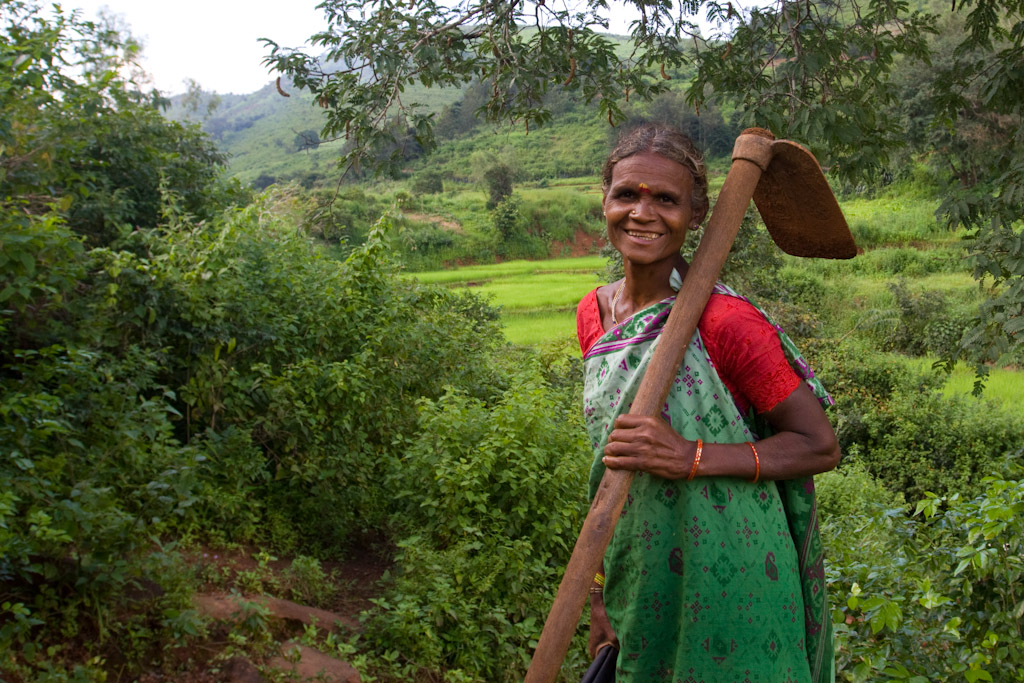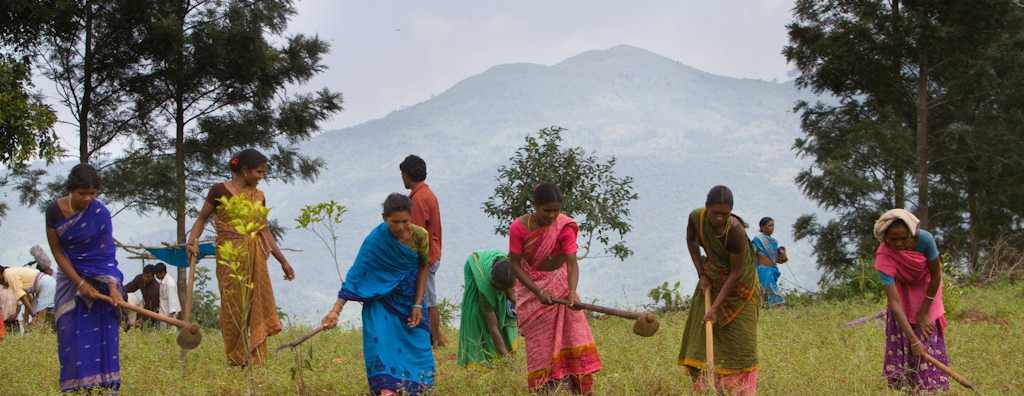The Adivasi people, living in the Araku Valley in Eastern India, are considered some of the most disadvantaged in the country. Once a community that lived off the forests, the erosion and degradation of the land during the British settlements left them in poverty and with few land rights. The marginalized area – with an altitude of 1200m and average annual rainfall of 1300mm – was characterized by low women’s literacy rates, high infant and maternal mortality, and low agricultural productivity.
So when the Naandi foundation arrived in the valley 17 years ago to help develop traditional coffee production, it quickly became apparent that the struggles of the Adivasi tribes – from health and nutrition to livelihoods and productivity – were rooted in the loss of the forest. To address this, Naandi developed the “Araku Way” as a way of rebuilding the forest. Through a holistic approach where farming is linked to education and community bonds, the NGO focused on land productivity, crop and pest management as well as market connection. And with the support of the Livelihoods Carbon Fund, the Naandi foundation was able to scale up its activities and co-build an agroforestry component to reach 100,000 people in 300 villages.
Food and income grow on trees
Within the Livelihoods-Araku project, the communities themselves have planted three million fruit trees to restore their degraded forests and an additional three million coffee plants for income. Grown in local tree nurseries, the saplings were distributed in the villages. Together with forest engineers, the communities decided on the plots to be replanted and were involved at all the steps of the project. Naandi trained 14,000 farmers on sustainable farming practices to enable them take good care of their trees and soil while preserving their fragile ecosystem. They also learned to produce their own compost to increase land productivity and manage pests and diseases without chemical products.

This way, the Adivasi tribes were able to diversify their crop portfolio with 18 varieties of fruit trees per acre, increasing their food security and also their income with the sale of extra fruits. After years of care and attention, mango trees are bearing their first fruits and soon, the communities will be able to produce 12,000 tons of mangoes per year for the local market. And thanks to the millions of coffee trees planted some years ago, the communities are now producing a high quality organic coffee. Organized into “Small and Marginal Tribal Farmers’ Cooperatives”, they sell their coffee directly to consumers and the first Araku Coffee store is now open in Paris. For communities that had been completely isolated on a few years earlier, this marked an incredible achievement. From previously degraded lands, the restored forest is now providing the Adivasi with food and income.
Support from committed companies
The restoration of 6,000ha of degraded lands has also provided shelter and food for wildlife and particularly endemic birds. Moreover, the trees planted by the communities will sequester around a million tons of carbon dioxide over 20 years. The project will be monitored during that time span to guarantee that it is delivering expected results for the environment and for the communities. Such a project over such a long period is made possible thanks to the deep commitment of the 10 companies supporting the Livelihoods Carbon Fund: Danone, Groupe Caisse des Dépôts, Crédit Agricole SA, Firmenich, Hermès, La Poste, Michelin, Schneider Electric, SAP & Voyageurs du Monde. These companies bear the investment risk for implementing large-scale projects in developing countries to link their sustainability transformation with social, environmental and economic impact for rural communities. They indeed rely on the Livelihoods Funds to generate carbon credits with high social and environmental value for them to offset part of the emissions they cannot avoid. The Livelihoods Carbon Fund has eight other ongoing projects in Africa, Asia and Latin America and it positively impacts the lives of a million people.
Learn more about the Livelihoods-Araku project and the Livelihoods Carbon Fund: www.livelihoods.eu or on Twitter by following @livelih00ds. This post originally appeared in the February edition of the WFO F@rmletter.


